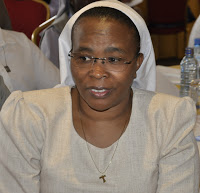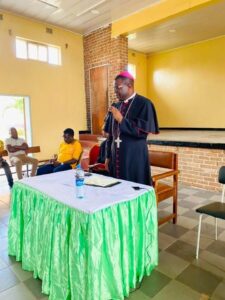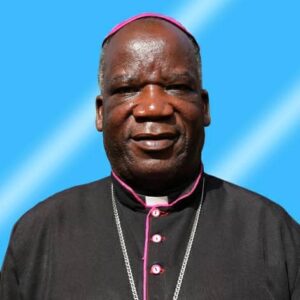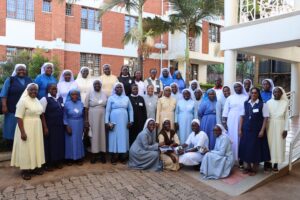KENYA: Six AMECEA Countries among the Beneficiaries of ASEC

Sr. Jane Wakahiu, ASEC Executive Director and SLDI Project Manager
By Pamela Adinda, AMECEA Online News
Religious Sisters from six AMECEA Countries are among 4500 nuns from across ten African Countries that have benefited from African Sisters Education Collaborative (ASEC), an initiative of Religious Congregations and four university presidents in Pennsylvania in the USA.
According to the Executive Director Sr. Jane Wakahiu, ASEC main goal is to provide access to education for Catholic sisters in Africa.

and SLDI Project Manager
“Most of the Catholic Universities in the US were receiving applications from sisters from Africa wanting to study there. The founders therefore thought that providing education to African Sisters in African university meant that they would provide education to more sisters and within their cultural context. It was against this backdrop that ASEC was initiated in 1999 although major programs started in 2007,” Sr. Jane explained during an interview with AMECEA Online News in Nairobi.
The six AMECEA countries that have benefited from the program includes Kenya, Uganda, Tanzania, Malawi, Zambia and South Sudan. The Other African Countries include Lesotho, Ghana, Nigeria and Cameroun.
“We have five different programs that caters to the total number 4500 nuns that have benefited from ASEC. Our two major programs that are funded by the Hilton Foundation include the Sisters Leadership Development Initiative (SLDI) of which we provide basic technological skills, financial management as well as leadership skills.”
The other program funded by the Hilton Foundation is the Higher Education for Sisters in Africa (HESA) project. To implement the project, ASEC has partnered with 23 universities across the ten countries where the sisters are enrolled to undertake their studies as they are and provided with scholarship.
The process involves application for the scholarship, which is made by the Religious Congregations. The ASEC Board then meet and do the selections based on the priorities that are outlined. The successful applicants are therefore notified and enrolled in the universities to undertake their studies.
Meanwhile speaking about the Hilton Foundation Convening that was recently held in Nairobi and which ASEC played a major role in organizing, Sr. Jane explained that ASEC wanted to elevate sisters to begin thinking about sustainable development goals that were ratified last year.
“We know that many religious sisters have heard about these sustainable development goals but they do not know how to connect their work with the goals. We have seen a gap on sisters’ inability or inadequacy in collecting data for their organizations and that data is what can exemplify sisters’ work of contributing towards the achievement of SDGs, for instance, through initiatives such as championing the girl child education and supplementing government’s efforts in providing health care services,” she explained.
Sr. Jane acknowledge the fact that religious sisters during their formation are taught about simplicity, therefore they do not encourage publicity on the achievements they have made. However, she said that time has come when the work of religious sisters must be recognised so that they too can get funding from partners to continue advancing the SDG agendas.
~End~


